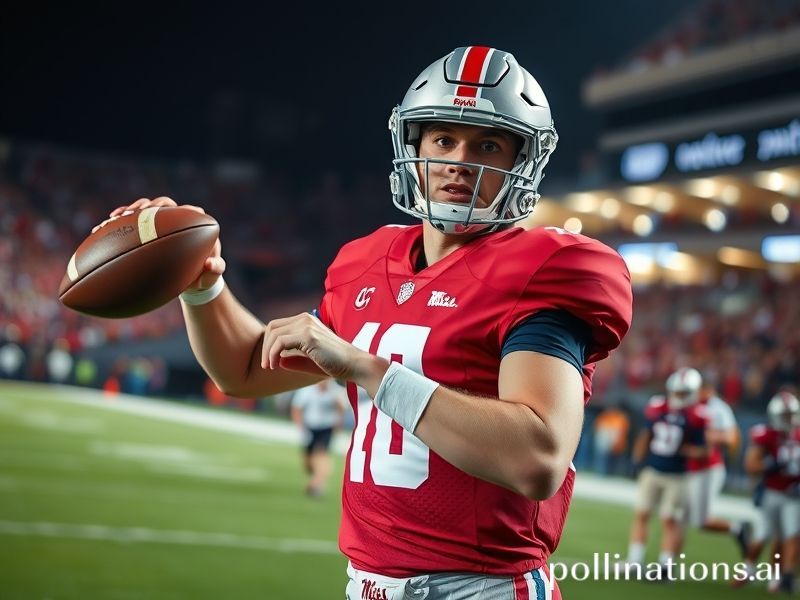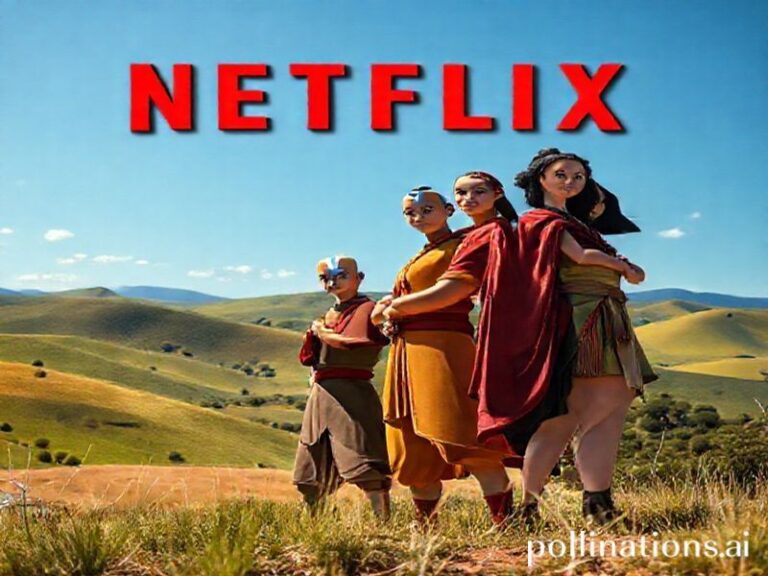Jaxson Dart: How a Kid from Utah Became the World’s Most Unlikely Geopolitical Weapon
From the banks of the Euphrates to the neon canyons of Tokyo, the name Jaxson Dart is now muttered with the same hushed reverence once reserved for popes, pop stars, and that guy who figured out how to deep-fry Coca-Cola. Yes, the Ole Miss quarterback—product of Utah prep fields, USC transfer portal purgatory, and a first name that sounds suspiciously like a Silicon Valley start-up—has become the latest American export to colonize the global imagination. In a world where wars are live-tweeted and central banks pivot faster than a slot receiver, Dart’s arm strength is treated like a diplomatic asset. If soft power had a 4.4 forty, it would wear jersey #2.
Europe, still pretending football is played with feet, nevertheless tracks U.S. college ratings like it’s the Bundesliga. When Dart carved up an SEC defense last autumn, traders in Frankfurt allegedly halted swaps to watch the highlight, proving once again that capitalism can monetize anything except a German sense of humor. Meanwhile, Chinese streaming platforms—where American sports are smuggled in via VPNs named after dead philosophers—reported a 67 % spike in “college quarterback” searches. Somewhere in Beijing, a teenager who can’t legally play Fortnite until 10 p.m. is now mimicking Dart’s release in a dorm hallway, inadvertently practicing the People’s Liberation Army’s next-gen drone-throwing technique.
The implications are deliciously absurd. Consider the transfer portal: a bureaucratic carousel that makes Brexit negotiations look streamlined. Dart’s 2022 relocation from USC to Mississippi required only a tweet and a lawyer, whereas your average Ukrainian refugee still needs a visa stamped by someone who’s never seen war outside of Call of Duty. Yet both journeys depend on the same global algorithm: attention equals currency, and currency buys you a better offensive line. Somewhere in Davos, a venture capitalist is pitching “Transfer Portal As A Service” to Nordic sovereign wealth funds. The PowerPoint slide reads: “If a kid from Utah can relocate talent to the SEC in 24 hours, imagine what we can do with lithium.”
Africa, historically mined for linebackers rather than lithium, watches this spectacle with bemused detachment. Nigerian Twitter jokes that the only “Dart” they know is the one that leaves Lagos traffic in existential gridlock. Still, the NIL money sloshing into Oxford, Mississippi—roughly the GDP of Sierra Leone—has not gone unnoticed. In Accra, sports academies now hire American-accented consultants who promise to turn “raw village speed” into “Power Five eligibility.” The fee is payable in dollars, euros, or, for the truly desperate, Twitter blue checks.
Latin America, cradle of magical realism, finds the whole story refreshingly on-brand. A Mormon-raised quarterback named Jaxson throwing 60-yard rainbows while wearing an Adidas-reptilian helmet? Gabriel García Márquez would have called it too subtle. Argentina’s sports pages compare Dart’s spiral to Messi’s free kicks, which is like comparing a Tesla to a tango: both electrifying, one significantly more prone to battery fires.
Of course, the darker punchline lurks beneath the confetti. Dart’s ascent coincides with record heatwaves, collapsing supply chains, and democracy indices that read like a crypto portfolio. Yet the planet pauses to argue over whether a 21-year-old can read a Cover-3. Perhaps that is the final luxury good: the ability to obsess over play-action while the world literally burns. If the Anthropocene had a halftime show, it would be a marching band spelling “YARDS AFTER CATCH” in flaming gasoline.
So here we are. Jaxson Dart—an accidental envoy of late-stage capitalism—now shoulders the hopes of gamblers in Macau, alumni in Mississippi, and algorithmic traders who’ve hedged his draft stock against wheat futures. Someday, archaeologists will unearth a broken tablet reading, “He had a cannon, but the seas still rose.” Until then, we watch, we wager, we pretend the scoreboard matters. Pass the nachos; the apocalypse can wait for the next commercial break.







